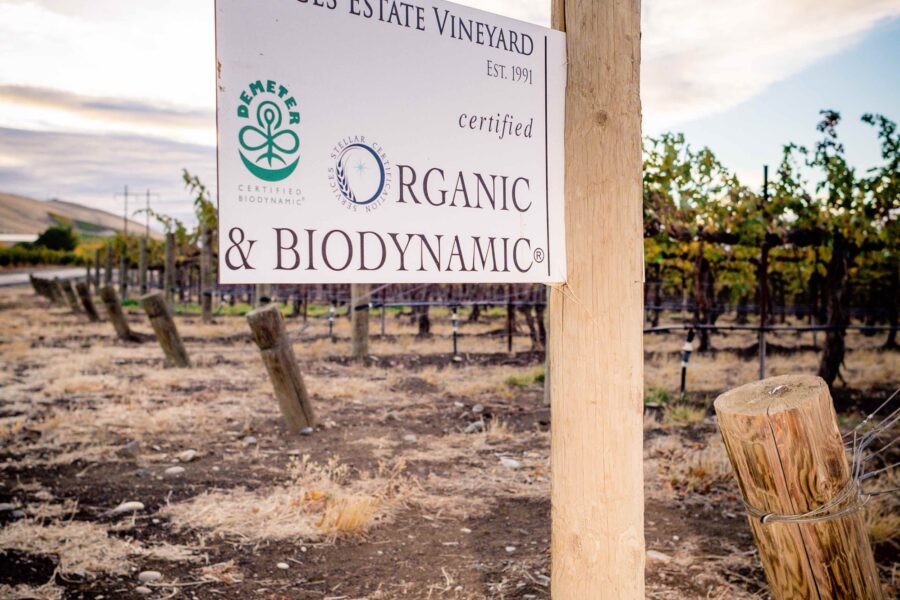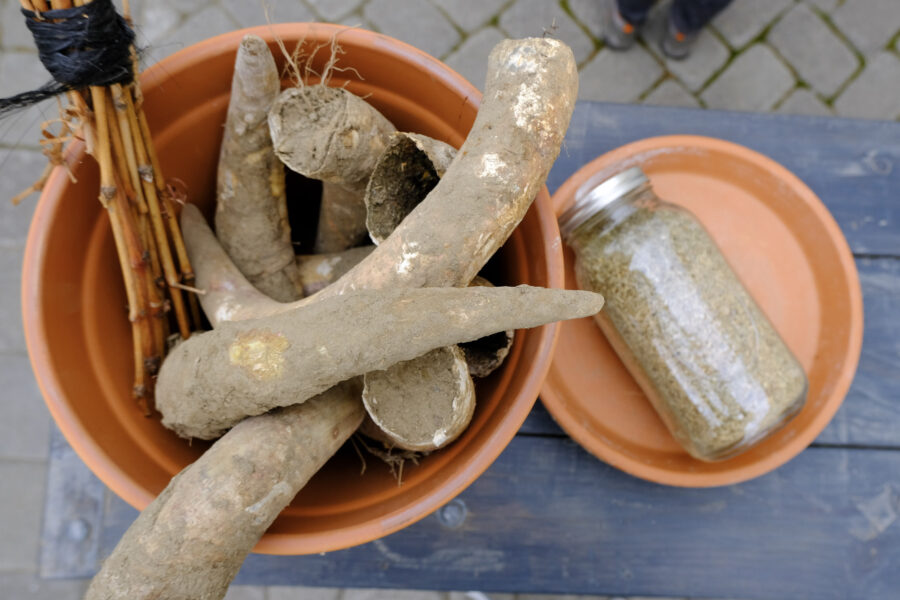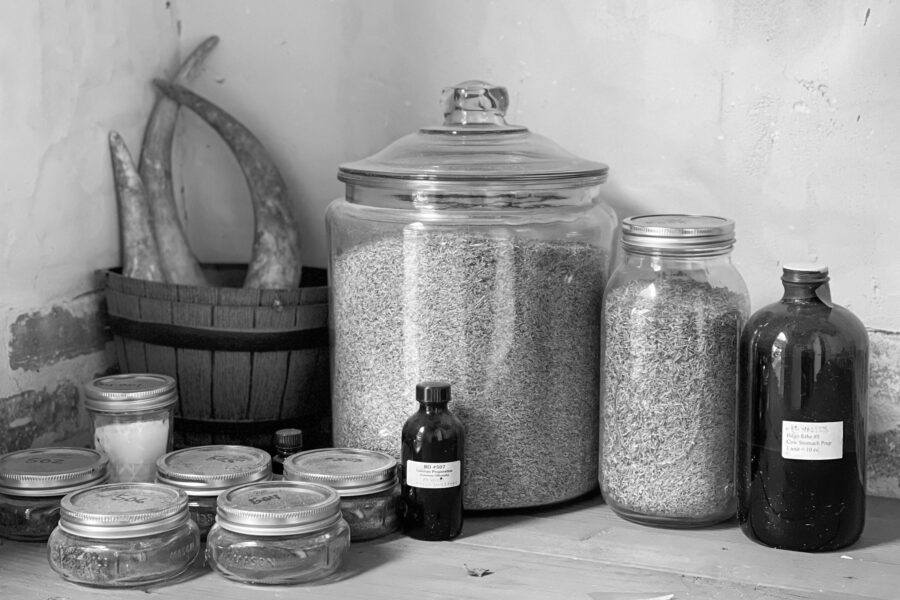Hedges Family Estate started farming Biodynamically in 2008 and received our Biodynamic certification in 2011 for Hedges estate vineyard. Since then, we have continued to be one of the pioneers for Biodynamic farming in Eastern Washington. As of 2021, all 120 acres of our Red Mountain estate properties have been certified Biodynamic. Our production facility is also Biodynamic certified and these Biodynamic wines are intimately connected to the estate, they are the most authentic expression of the land and the fruit that it bears.
What is Biodynamic farming and who created it?
At its core, Biodynamic farming is the observation of nature and its application to a farming system. Nature is an interconnected whole and we cannot farm without nature’s input.
“In 1924 a group of European farmers approached Dr. Rudolf Steiner (noted scientist, philosopher, and founder of the Waldorf School) after noticing a rapid decline in seed fertility, crop vitality, and animal health. In response, Steiner held a series of lectures that presented the farm as a living organism: self-contained and self-sustaining, responsible for creating and maintaining its individual health and vitality. This was in sharp contrast to the view of the farm as a factory, able to boast production by importing chemical pesticides and synthetic fertilizers, which was largely responsible for the observations of depleted vitality noted by the farmers who sought Steiner’s guidance. Steiner was one of the first public figures to question the long-term benefits of this manufacturing view of agriculture, to warn of its environmentally destructive practices, and to propose an alternative to chemical agriculture.” (Demeter USA)
Biodynamic agriculture views the farm as a self-contained, self-sustaining ecosystem, with the end goal of the farm managing its hardships without many external inputs. It’s an integrated approach to agriculture that doesn’t just try to grow a product and maximize yields. It looks at the health of the entire farm, which includes soil, plants, animals, and humans. Each farm looks at its unique terroir to create an approach that allows the farm to thrive to its fullest potential, and in turn, produces fruit of the highest quality free from synthetic chemical inputs that damage the soil and farm life. Recycling of farm products, integration of animals, 10% total acreage dedicated to native plants for biodiversity, and water conservation are just some of the tools used to farm Biodynamically. The use of Biodynamic preparations is required. Nine preparations are made from herbs, mineral substances, and animal manures that are utilized as field sprays and compost inoculants. Timely applications of these preparations revitalize the soil, stimulate root growth, enhance the soil microbiome, and aid in photosynthesis.
Agriculture is already one step removed from the wilderness; we use Biodynamic principles to be as close to nature as possible.
What does the Biodynamic certification mean?
In order for a winery or a vineyard to refer to itself as Biodynamic, it must have achieved certification through Demeter by adhering to the Demeter Farm Standard for a minimum of three years if conventionally farmed, or a minimum of one year if organically farmed. The entire farm, or vineyard, must be certified, not just a portion of land within the farm. The goal is to have a farm that is REGENERATIVE, not degenerative.
Farms are inspected annually to ensure that the Standard is being met. The Farm Standard reflects the Biodynamic principle of the farm as a living organism: self-contained, self-sustaining, and following the cycles of nature. Through these practices, we can maintain or improve soil health, and create a farm that integrates plants and animals and promotes biodiversity. It demands close observation and participation of the farmer. In practice, Biodynamic farming meets the organic standard including the prohibition of chemical fertilizers, pesticides, herbicides, and fungicides, but goes much further. The integration of animals and animal feeds, perennial plants, flowers and trees, water features, and composting is emphasized. Dependence on imported materials for fertility and pest control is reduced. Water conservation is considered. A healthier vineyard begins with healthier soil. Healthier soil results in expansive root systems, which essentially channel terroir into the grapes. This ensures a wine with an expressive and unique individuality: a “taste of place”.
Social responsibility, which includes respect for and observance of human rights is also included in the certification.
We are committed to sustainability, soil health, human health, and community health. Demeter certification gives us third-party accountability so that our local and world community can be assured that we practice what we preach.





